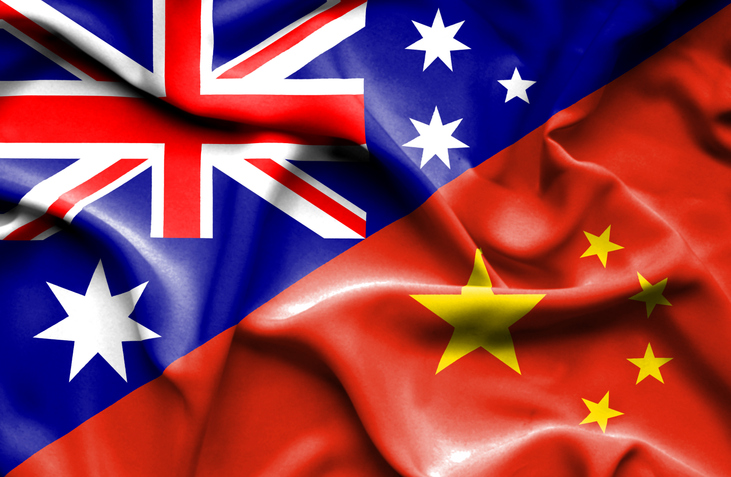Prime Minister Anthony Albanese leaves for China on Saturday, confident most Australians back the government’s handling of relations with our most important economic partner and the leading strategic power in Asia. (more…)
James Laurenceson
-
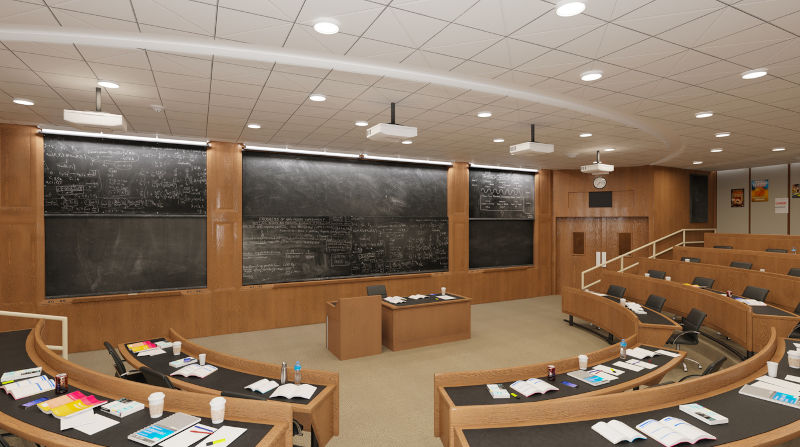
Unis take foreign interference risks seriously
The security risks that Australian universities face through their many and varied international connections need to be taken seriously. (more…)
-
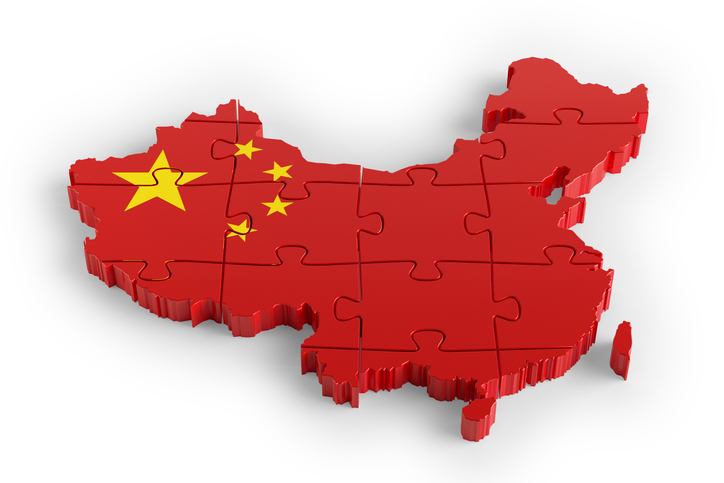
Mega-thinktanks have one dangerous thing in common
With former secretary of the Department of Foreign Affairs and Trade Peter Varghese undertaking a review of taxpayer dollars spent on strategic policy work, Australia’s China hawks have argued a Canberra-based thinktank, the Australian Strategic Policy Institute (ASPI), cannot be touched. (more…)
-

Why Dutton has begun flying in the face of the China hawks
As the Australian opposition leader’s rhetoric softens dramatically, the days of turning China into an election wedge appear over. (more…)
-
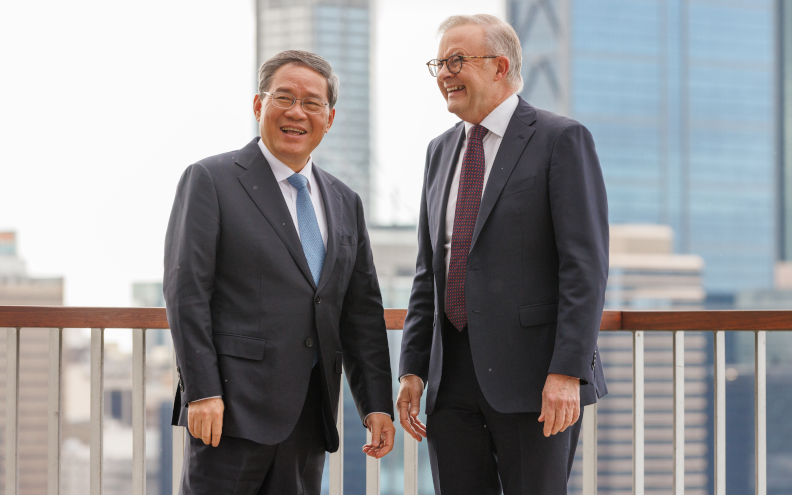
Choosing the path of diplomacy
Sino-Australian ties show signs of great resilience, stability as leaders take positive approach. (more…)
-

What Albanese could seek to achieve in China visit
Whether Australian Prime Minister Anthony Albanese will visit China in 2023 remains uncertain, but the odds are favourable. Beijing has issued an invitation and Albanese said that the trip remains ‘likely’. Foreign Minister Penny Wong has confirmed that Canberra ‘would look to make sure that a visit can occur’. But there remain two factors that might derail a visit. (more…)
-

The resurgence of China-Australia trade
Prosaic economic factors, not politics, are driving the growth in China-Australia trade, ensuring “China will only become more important as Australia’s trading partner of choice,” writes James Laurenceson. (more…)
-
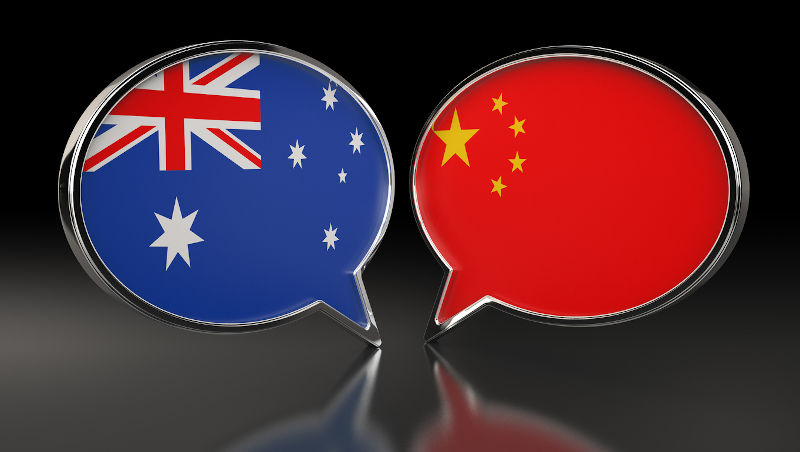
With a new Australian government and foreign minister comes fresh hope for Australia-China relations
An Albanese government in Canberra means an improved trajectory in Australia-China relations is a real possibility. Sure, there will be no “re-set” like we saw in the heady days of 2015. The world has changed; Australia and China certainly have. (more…)
-
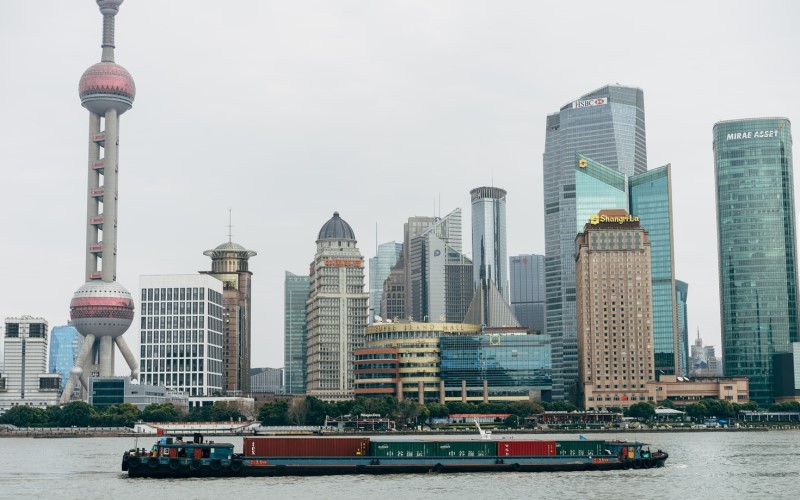
China trade: the disturbing gap between US rhetoric and reality is emerging
The fervid declarations of US support for Australia amid China’s trade sanctions count for little: the data shows Australia stands alone in paying the costs.The US does not have our back. It is grabbing our markets in China. (more…)
-
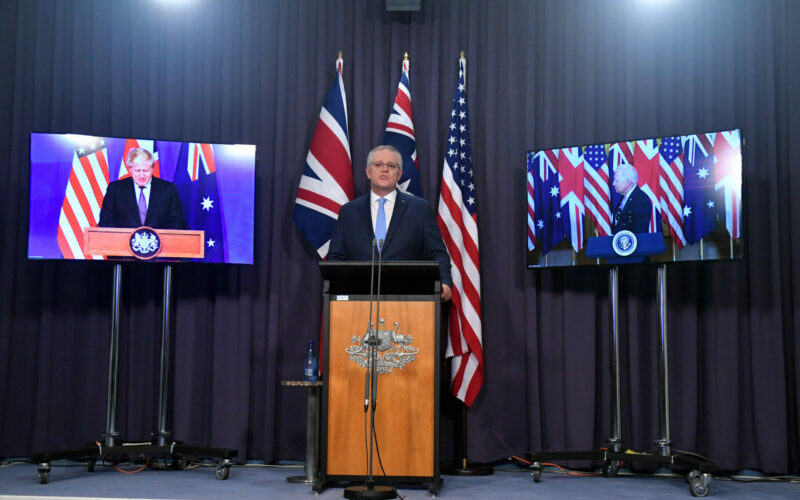
Australia may be standing alone on China as the US does not ‘have our back’
Canberra sees any repercussions for ‘standing up to China’ as a badge of honour. But the US is grabbing our markets one after another — it’s now LNG.
-
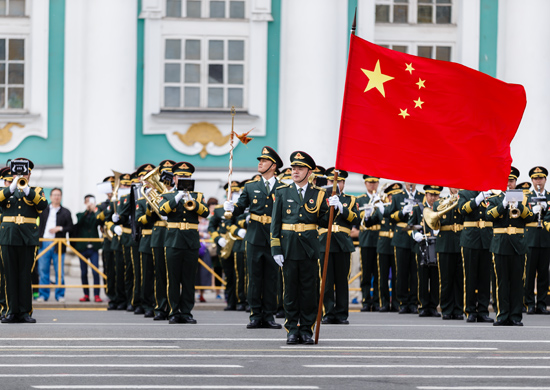
‘Permissible’ Chinese military spending, AUKUS, and the security dilemma
The view that AUKUS is a justified response to China’s actions ignores China’s achievements and future ambitions. It also ignores China’s legitimate security fears.
-
No evidence the US has Australia’s back in its dispute with China, despite all the rhetoric
The US has “got our back”. This talking point is repeated by Australian government ministers with rising fervour, as China continues its campaign of trade punishment against Australia. Think-tank experts and media commentators amplify it further. (more…)
-
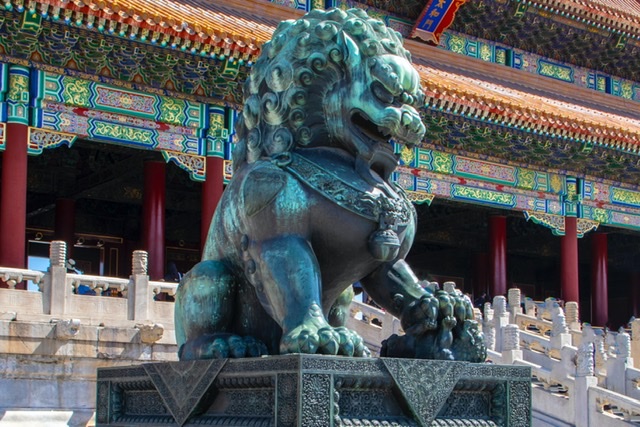
Will the Five Eyes stare down China’s economic coercion? So far their self interest looks to be winning out.
For at least some products , Australia may not so much be “left alone on the playing field” as substituted off and only able to watch from the sidelines. (more…)
-
Establishing the facts of Australia’s China policy since 2016
With the relationship between Australia and China now in a stalemate with the possibility it could get worse, leading local protagonists have taken to telling a story of how things came to be. But it’s in no small part a self-serving tale, seemingly designed to deflect having to take some responsibility. (more…)
-
Stalemate in Australia-China relations
The People’s Republic of China continues to reject overtures for high-level ministerial dialogue while maintaining that Australia bears the lion’s share of responsibility to create a situation in which the relationship can be improved.
-
China enters 2021 a stronger, more influential power — and Australia may feel the squeeze even more
Great power competition in the Asia-Pacific region has been building for years. But COVID-19 has turbo-charged the shifts taking place and China is finishing 2020 in a significantly stronger position compared with the US than when the year started. (more…)
-
Why Australia is on its own in its trade conflict with China (Australia-China Relations Institute Dec 2, 2020)
As China piles on the trade pressure, the reality of Australia’s economic place in the world has been laid bare: it is on its own.
-
Clear-eyed responses as well as assessments needed on the PRC
Being clear-eyed about China under Xi Jinping is one thing. But managing the relationship effectively also requires Australia to be clear-eyed about the effectiveness of our policy options in response. (more…)
-
PM strikes the right balance in managing China ties
Allowing the federal government to terminate deals with foreign powers is better than going down the Trump road of bans and aggressive decoupling from China. (more…)
-
We should seize the olive branch offered by China.
Prime Minister Scott Morrison says that Australia must “speak with one voice” when engaging with foreign governments and their related entities. All eyes are on Beijing. (more…)
-
The Myth of Chinese Money in Australia
Fears amongst the Australian public of China buying up the country run deep. Opportunistic politicians and commentators have long shown a willingness to tap into this unease to boost their own following. (more…)
-
JAMES LAURENCESON. China in a time of change.
China and the Technology Race
To deliver rising living standards to its citizens, China needs to move up the production value chain. Technological progress and innovation are at the heart of this. That is why US measures to restrict China’s access to technology are viewed by Beijing as far more serious than tariffs: the former is tantamount to an attempt at containment. China spends nearly the same amount the US does on research and development (R&D), closing in on $US500 billion every year. (more…)
-
JAMES LAURENCESON. Morrison’s visit to the US shows his common ground with China (AFR 25-9-19)
Scan the headlines generated by Scott Morrison’s trip to the United States and you could get the impression that the Australian government is increasingly tilting towards supporting Washington in its economic war against Beijing. (more…)
-
JAMES LAURENCESON, MICHAEL ZHOU. Small Grey Rhinos: Understanding Australia’s Economic Dependence on China (Australia-China Relations Institute)
Australia lives with an acute ‘fear of abandonment’.
In security terms this fear has underpinned Australian foreign policy settings for decades. Recently, doubts about the reliability of the United States as Australia’s security guarantor have sent Australian government ministers on a mission to convince America that ongoing – and expanded – engagement with Australia’s neighbourhood is in its own interests. (more…)
-
JAMES LAURENCESON. Australia’s China debate.
Australia’s China debate is frequently cast in terms of ‘doves’ versus ‘hawks’, with the former also receiving the tag of being ‘pro-China’ and the latter designated ‘anti-China’. In fact, the common ground between these two groups is expansive. (more…)
-
JAMES LAURENCESON. American Interest
Australia is a US ally, and Washington is inevitably interested in understanding Canberra’s approach to managing its relationship with Beijing. It can also be expected that the US will seek to influence the approach that Australia adopts in view of its own national interests. There is nothing inherently untoward about this. But with the US switching to an adversarial stance on China, Australia will need to have its eyes wide open about US attempts at influence. (more…)
-
James Laurenceson and Hannah Bretherton. What Australians really think about a rising China.
Current Affairs
What does China’s rise as a major power mean for Australia? The answer depends on who you ask.
In March 2015 the Sydney Morning Herald’s International Editor, Peter Hartcher, described China as a fascist state that bullies its own citizens and neighbouring countries alike. That about sums up the ‘China threat’ view.
Yet there’s also no shortage of CEOs gushing with praise for Chinese government policies that are expected to deliver more than 850 million people into the ranks of the middle class by the end of next decade.
Australian politicians spend a great deal of time listening to both ends of the spectrum. In November 2014, Prime Minister Tony Abbott allegedly told German Chancellor Angela Merkel that Australia’s policies towards China were driven by ‘fear and greed’. Responding to this comment, Linda Jakobson, founder of the public policy initiative, China Matters, remarked that ‘the Prime Minister captured the bipolar nature of Australia’s attitude towards China’.
This may be true among Australian commentators, CEOs and politicians. But there’s one important group in Australia to which the bipolar tag does not apply: the general public.
In April 2015, the Australia–China Relations Institute (ACRI) surveyed more than 1500 Australians to better understand their attitudes towards China’s rise. The big finding was that on most questions it was the middle ground that had the greatest support.
The ACRI survey started with the question about whether China will replace the US as the region’s dominant power within the next 20 years. Those who believed it ‘very likely’ (27.2 per cent) outnumbered those who thought it was ‘not at all likely’ (7 per cent) by a ratio of nearly four to one. But an even larger proportion took a middle of the road position and said it was either ‘somewhat likely’ (40.9 per cent) or likely (25.0 per cent).
The majority are probably right. The consensus view of the IMF and the OECD is that China will become the world’s largest economy sometime before 2030. But in per-capita terms it will remain well behind the US. And in terms of military might, a 2014 report by the Kokoda Foundation made it plain that China will take much longer to catch up.
The public did take a strong view that China’s rise would be good for the Australian economy. Out of all of Australia’s free trade agreements, 44 per cent said that the one with China will bring the biggest benefits. That compares with 31 per cent, 20 per cent and 6 per cent nominating the free trade agreements with the US, Japan and South Korea, respectively.
As far as the security impact goes, the extremes were rejected, particularly at the negative end of the scale. If China did become the region’s dominant power, less than 14 per cent of Australians thought this would be ‘very damaging’ for Australian security. In contrast, nearly one-quarter said it would be not damaging at all. Still, that means that 63 per cent took a position somewhere in between.
Respondents were then asked if Australia should expand military cooperation with the US to help counterbalance China’s growing military power in Asia. Once more the extremes were shunned: nearly three-quarters of Australians said this would be either ‘somewhat unwise’ or ‘wise’ (35.4 and 38.1 per cent respectively). That left just one-quarter opting either for ‘very unwise’ (11.9 per cent) or ‘very wise’(14.7 per cent).
And on whether Australia should send its armed forces to join a war against China in support of the US, fewer than one in ten (9.2 per cent) said that it would be ‘very wise’ to go in with guns blazing. Nearly three times as many were of the view that this would be ‘very unwise’(26.0 per cent).
The results show that most Australians don’t buy into the idea that a more powerful China is an obvious threat to their national interest. But unsurprisingly there is some caution: Australia and China have different political systems, values, culture, history and language. And the elevation of China in Australia’s national consciousness has been both recent and rapid.
That’s all the more reason for Australian leaders to avoid letting fear dictate policy. Instead it provides a clear case for investing heavily to better understand and explain this most complicated of bilateral relationships.
James Laurenceson is Deputy Director of the Australia–China Relations Institute (ACRI), University of Technology, Sydney.
Hannah Bretherton is a researcher at ACRI
This article was first published in East Asia Forum on 27 May 2015.
